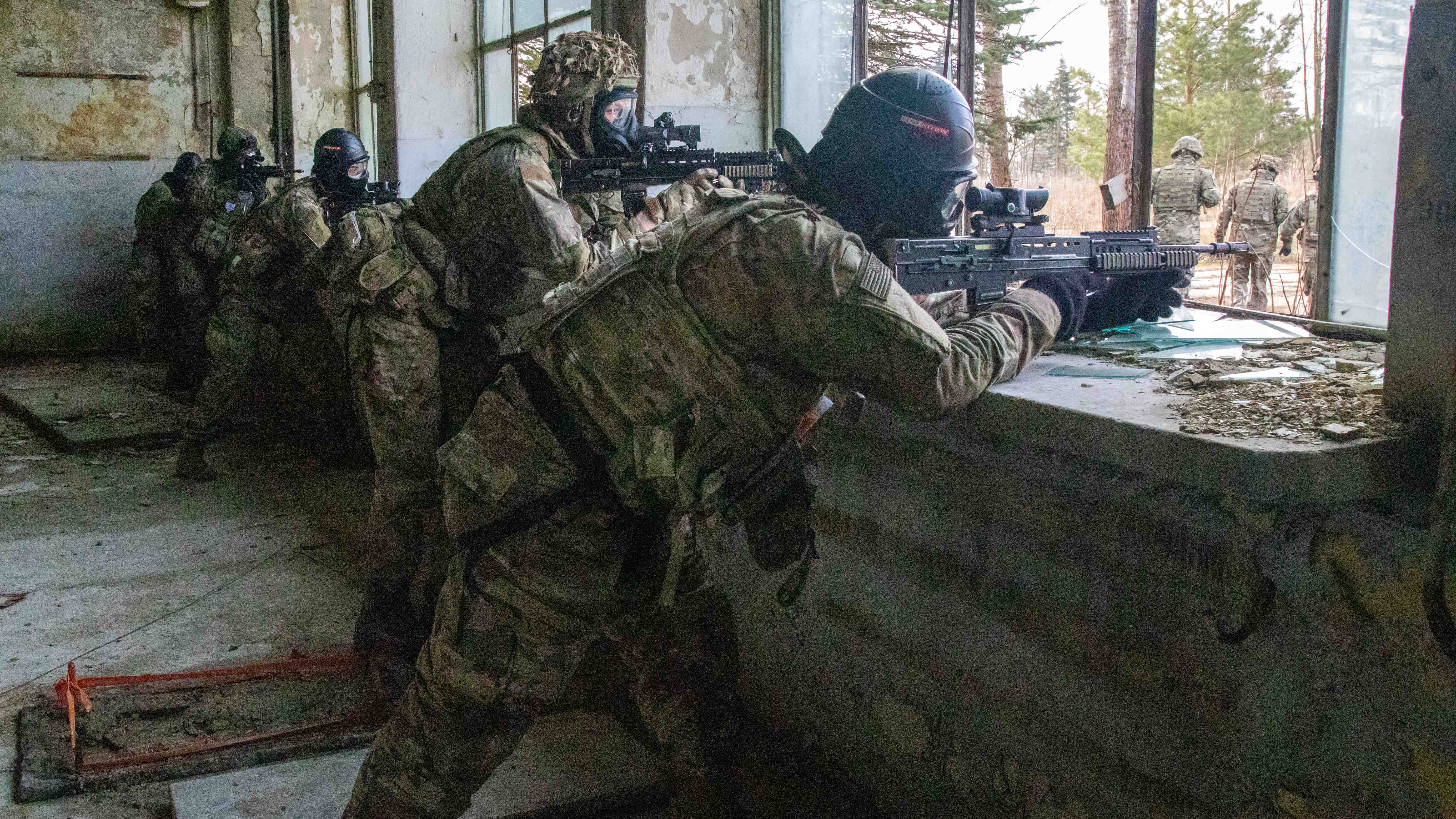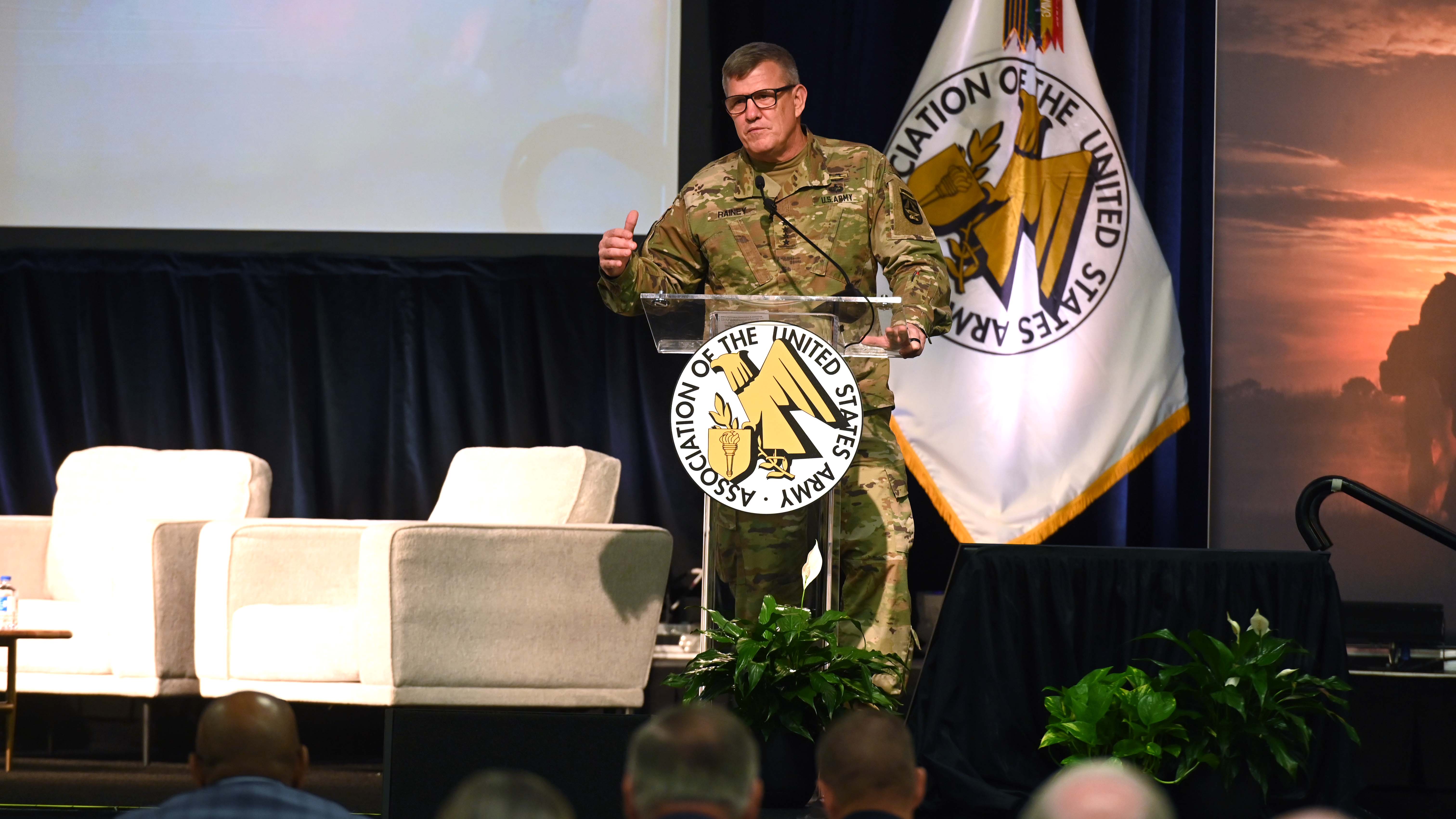Army Must Continuously Adapt
Army Must Continuously Adapt

The Army’s transformation push becomes more important every day, said Gen. James Rainey, commanding general of Army Futures Command.
Speaking July 27 at the Association of the U.S. Army’s Warfighter Summit and Exposition in Fayetteville, North Carolina, Rainey said, “There are absolutely some seriously disruptive things happening in the world and happening in our profession right now.”
“I believe that the amount of disruption and the pace of disruption we are experiencing in combat right now is unprecedented since maybe the lead up to World War II, when people were inventing airplanes and tanks,” Rainey said. “Whatever you think you know, you don’t. Whatever you do know, you are not going to know next year,” he said of the pace of changes in warfare.
To keep up, the Army will need “continuous adaptation,” Rainey said. He also had two warnings, which he described as “gigantic things you should be thinking about.”
First, soldiers should expect to be under constant observation in future wars. “You’ve got to wrap your head around that,” Rainey said. “The enemy is going to be able to see us.”
Second, “the probability of urban combat is indisputable,” he said. It will be unavoidable. “Enemies have to avoid us, and the only way they can do that is intermix with civilian populations,” Rainey said, adding that he doesn’t expect U.S. forces will need to clear urban areas, but they will need to move through them.
Rainey is upbeat about much of the Army, especially its NCOs. “We are in a pretty good place,” he said, describing the all-volunteer force as strong. The NCO corps “is our superpower.”
“Skill plus will equals kill,” he said.
Rainey also spoke briefly about artificial intelligence and robotic warfighters, which he said were still in the distant future. He sees value in having machines make the first contact with enemy forces, but decisions must be made about how much risk can be offloaded from humans onto robots. The moral responsibilities of warfare will never be left to machines, he said.


